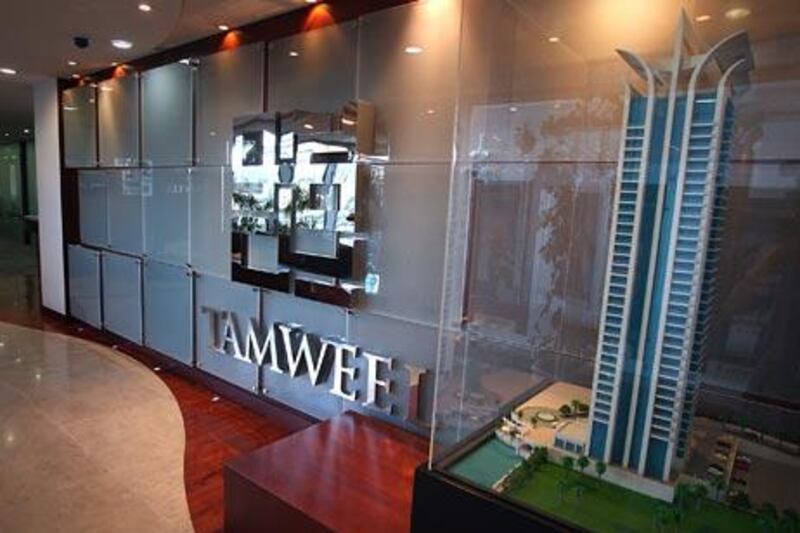Tamweel, the larger of the UAE's duo of Islamic mortgage lenders, is back in business after a two-year freeze.
The Dubai-listed company will start offering home loans to customers in Dubai and Abu Dhabi, it said in a statement. It will offer up to 80 per cent financing, though with a "renewed focus on prudence and conservatism".
The relaunch marked a milestone for the Dubai's economic recovery and was a watershed moment for Tamweel in its bid to resuscitate its ailing home financing business. Tamweel's return was also a symbolic victory for Dubai's property market, where average prices have fallen by more than 50 per cent from the peak in 2008.
"While the past two years have been extremely challenging for the company – during a period of unprecedented turmoil in the global real estate and financial services sectors – we have persevered," Varun Sood, the chief executive of Tamweel's home finance division, said in a statement.
Tamweel was one of the hardest-hit companies in the UAE by the financial crisis. It ran aground in November of 2008 because of its reliance on loans from banks and investors to finance its business. With no base of customer deposits to tide it over, the company quickly had to close up shop when conditions worsened in credit markets and property prices dropped.
A government panel was formed in late 2008 to work out a merger between Tamweel and Amlak, the UAE's other big Islamic mortgage company. Despite numerous proposals, none came to fruition and the plan was ultimately scrapped.
Dubai Islamic Bank, the UAE's largest Shariah-compliant bank, raised its stake in Tamweel to 57.3 per cent in September. That set the stage for its relaunch with DIB's stronger financial backing.
Tamweel's shares have been suspended from trading on the Dubai Financial Market since merger talks began in 2008. The company did not say when or if trading would resume, and attempts to reach executives were unsuccessful.





